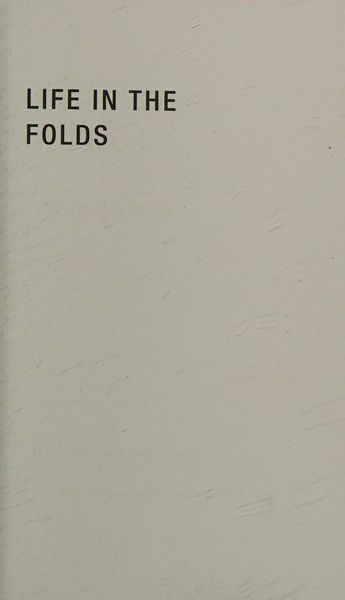
Life in the Folds
"Life in the Folds," originally published in French in 1949, is the Belgian-born author and artist Henri Michaux's (1899-1984) most direct exploration of the many forms of suffering, a laboratory of fantastical, destructive energies in which the poet presents his methods for dealing with the world around him. The first two sections offer such items as the Slapping Gun and the Man Sling (in the section "Freedom of Action") to the scenarios that call for defensive measures such as the "Constellation of Jabs" and the visceral "Blow of Fatigue" (in the section "Apparitions"). Also included is one of Michaux's more complex fantastical-anthropological travelogues, "Portrait of the Meidosems," an account of the ways and manners of a population of vague ectoplasmic figures, anguished filaments of sorts that struggle to exist but are never allowed to sit still. This volume charts a turning point in Michaux's life and in the world, where his earlier depictions of visualized psychology and suffering found representation in a traumatized Europe. Imbued by the war years, the Occupation and the horror of the concentration camps, "Life in the Folds" bears the scars of Michaux's own personal catastrophe--the loss of his wife, who had died of "atrocious burns" the previous year--and concludes with the autobiographical text, "Old Age of Pollagoras," a wearied testament uttered before a haunted "plain of death."